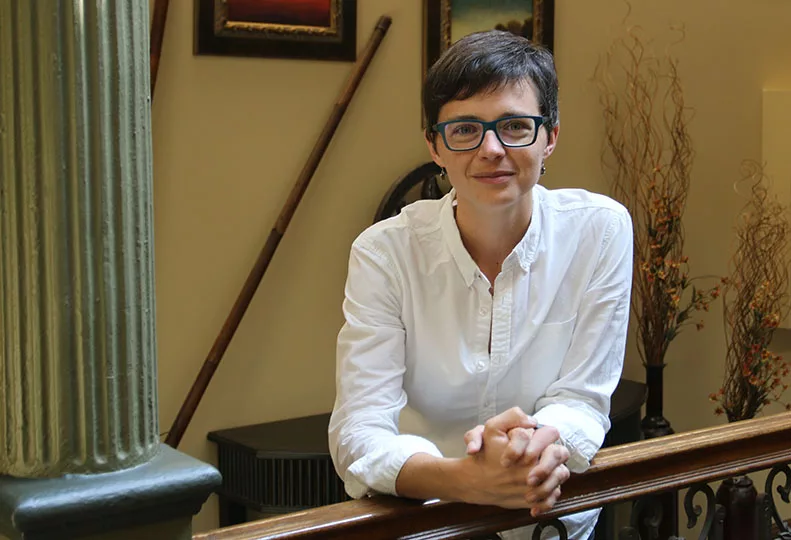Spark Mobility to expand into Northwest markets
'Green' bike, car rental concern already in Europe

A Spokane-based energy conservation business with five offices abroad is now looking to establish its business in major cities west of the Cascades.
Katherine Frankhauser, co-owner of Spark Mobility, says the company believes there is a rental demand for its electric- and battery-powered bikes and cars in Seattle, Portland, and Bellingham, Wash.
Frankhauser and her husband, Manuel Guerrero, started the company two years ago in Europe.
“Spokane is an ideal home base for us because I’m from here and it is affordable to do business here,” says the 34-year-old Lewis & Clark High School graduate. “Being here has allowed us to put resources toward implementation instead of overhead. But right now, we don’t see Spokane as a target city.”
She declines to disclose the company’s annual revenue.
Belgium, France, Hungary, Luxembourg, and Switzerland all have at least one city where Spark Mobility has set up rental transportation stations for paid monthly or hourly subscribers to the service. The idea behind the company is for businesses and individuals to reduce carbon emissions by cutting back, or eliminating altogether if possible, gas-powered automobile use.
It’s akin to arriving at a rental car service, Frankhauser says. However, Spark Mobility uses cloud-based software instead of a live attendant. Subscribers can view availability, reserve a car, open it, and end a trip through a mobile or other online app. Businesses requiring a fleet of multiple cars on a daily basis have the ability to manage a fleet, track usage, and control availability, Frankhauser says.
Electric and battery-powered bikes operate in similar fashion. A card reader is set up where a swipe of a membership keycard releases the bike. Theft has been rare because stations are highly secure and in visible locations, Frankhauser says.
“E-bike stations are operating in Paris and Noirmoutier, France; Bertrange, Luxembourg; Hasselt, Belgium; and Geneva, Switzerland, among others. Some of these are municipal systems and some are private. Car sharing is in Belgium, Norway, and Sweden. These are private rather than public systems, and in some cases are institutional fleets,” Frankhauser says.
Spark Mobility has partnered with Wattworld, S.A., in Switzerland, makers of the e-bike sharing system, to bring the same system to the U.S. The auto-sharing partners, located in Belgium and Sweden, have requested anonymity, Frankhauser says.
Monthly membership cost ranges from $20 to $150, depending on frequency of use and form of transportation. Hourly rentals also are available, and depending on transport, can range from $2 to $7 per hour, Frankhauser says.
The motorized bikes—which can also be pedaled if the rider desires—have proven to be popular, Frankhauser says. “They reduce the physical exertion of the user,” Frankhauser says. “The biggest opposition in biking to work is having to shower once you get there. We’ve tried to reduce the excuse to not use the bike.”
Frankhauser earned her undergraduate degree in environmental sciences from Western Washington University in Bellingham in 2003. Not long after graduating, she went to work for an environmental organization in Belize. She moved to Europe five years ago, again working for different environmentally-focused companies. It was during that time that the idea of Spark Mobility came to mind.
Anecdotally, European businesses that utilize Spark Mobility’s services say they have reduced transportation and parking costs. Several bike and auto users say they have abandoned the use of cars altogether, Frankhauser says.
“The majority of people in the world live in dense urban settings,” she says. “We asked, ‘What can be done to effectively make us move better as a herd?’”
Related Articles

_c.webp?t=1763626051)
_web.webp?t=1764835652)

